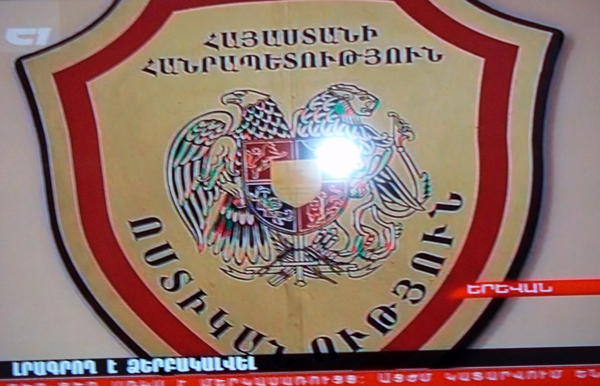Armenia’s entire media and not only the media community is simply shaken by the news of journalist, Haykakan Jamanak (“Armenian Times”) veteran correspondent Hayk Gevorgyan’s arrest and also by the means and methods police employed in conducting the arrest. The entire news media sector, online communities, social networking sites and news websites are making a hoot, presenting this fact and the viewpoints related to it — just as Haykakan Jamanak chief editor Nikol Pashinyan’s press conference and the statement issued by the paper, so too the police press statement issued by police and people’s opinions on both sides of the story.
If all these news outlets only presented one viewpoint, one version of the story (it doesn’t matter which — the Haykakan Jamanak or police version), the most we could say is that it’s not right from a journalism ethics perspective. However, there is one news outlet which is established based on the Armenian Constitution and is obliged by the RA Law on TV and Radio to ensure pluralism. No doubt I’m speaking about public television.
I hadn’t watched that TV station’s news programs in a long time. The incident with Hayk Gevorgyan forced me to watch the 9 pm broadcast of Arachin Lratvakan (“first news”) to see how the news outlet sustained by taxpayers’ dollars would report this news. To tell the truth, I would be very surprised and would gladly make a note and even write a laudable piece if this TV station’s news program differed in any way from the last way I watched it, and if apart from the official police version and statement, it presented also the press conference at Haykakan Jamanak and at least read an excerpt from the statement issued by the paper. But I and, it seems, many other TV viewers weren’t destined to be surprised. The so-called public television was faithful to itself — it presented only the official police statement. [[wysiwyg_imageupload:174:]]
I want to remind those responsible for public news broadcasting of an excerpt from the RA Law on TV and Radio:
“5. Public TV and Radio Company is obliged to…
“… use the most convenient airtime for the most publicly popular program [i.e. that which has great public resonance], presenting the official statement and pluralism of opinions on the subject.”
But if we even put aside the legal requirement, there is a purely ethical journalistic principle: that is, in disseminating any information, especially one having public resonance, to present facts obtained from as many sources as possible. And Hayk’s arrest had already picked up great resonance.
It was proven once again that the so-called public television really has no connection to the public, and the agenda of its news programs, as my friend Gegham Vardanyan wrote one time, no connection to the public agenda.
And one more thing: public television’s 9 pm news broadcast on Feb. 3 reminded me of the notorious decree of Mar. 1, 2008: “…mass media reports concerning state and domestic political issues” are limited only to “official information by state bodies.”
Probably Armenia’s Public TV is still living under the inspiration of Mar. 1, 2008…
Mesrop Harutyunyan







